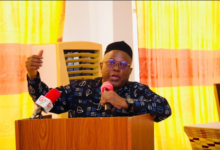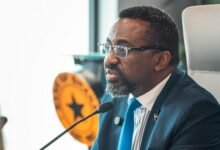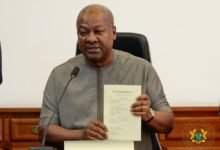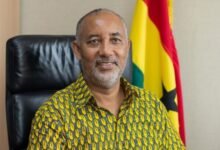
At least 1,230 hectares of forest plantation across three communities in the Kwahu East District of the Eastern Region have been restored as part of the Ghana Landscape Restoration and Small-Scale Mining Project (GLRSSMP).
The communities are Dwerebease, Hyewohoden, and Aseseso.
The project, which began in 2022, was a collaboration between the Ministry of Environment, Science, Technology and Innovation (MESTI), the Forestry Commission, the Environmental Protection Agency, the Ghana Cocoa Board, the Ministry of Food and Agriculture, PRO Green, and the World Bank, which funded the initiative.
The primary goal of the project was to rehabilitate areas of vegetation that were degraded due to the activities of herdsmen who had settled on the land.
On a visit to the restored forest reserves, the Minister of Environment, Science, Technology, and Innovation, Mrs Ophelia Mensah Hayford, emphasised the importance of collective efforts from farmers and stakeholders to protect and sustain Ghana’s natural resources for the benefit of all citizens.
Mrs Hayford acknowledged the significant damage that had been done to the land through deforestation, bush burning, and other destructive human activities, which had severely impacted farmers by destroying their farms.
However, she expressed satisfaction that the project had successfully restored parts of the forest and called on farmers to collaborate with the government by planting more trees and adopting sustainable agricultural practices.
Such practices, she stated, would not only help to restore the vegetation but also improve crop yields.
“I would plead with the farmers to desist from illegal felling of trees and bush burning for hunting purposes. We now have modern technologies for hunting, and we can even rear animals like grass cutters at home. I urge farmers to engage in activities that will benefit the country,” Mrs Hayford stated.
She stressed the need for a sustainable environment, noting that Africa’s dependence on natural resources makes their conservation essential.
She further noted that the project aligned with the government’s broader goal of ensuring environmental sustainability while enhancing food security.
Mrs Hayford advised farmers to practice mixed cropping alongside tree planting to improve soil fertility, and she emphasised the benefits Ghana could reap from carbon credits as the forest cover is restored.
Isaac Mensah, the Director of Agriculture for Kwahu East, supported this view, and explained that his office, along with the Forestry Commission and other partners, was committed to reclaiming land lost to Fulani herdsmen.
The project’s efforts to plant more trees would not only help restore the ecosystem but would also contribute to achieving the Sustainable Development Goals (SDGs).
The Mpraeso District Forest Manager, Nii Kwei Kussachin, indicated that the project, which included various modules, had improved water flow and boosted the district’s economic systems.
The District Chief Executive of Kwahu East, Isaac Agyapong, also praised the collaboration and expressed gratitude to MESTI for selecting the district for the project.
He pointed out that over the past two years, 18 communities had been involved in watershed planning, and 2,641 people, including 735 youth that had been trained in sustainable agricultural practices.
He said the initiative marked a significant progress in tackling deforestation, land degradation, and climate change, in alignment with Ghana’s commitment to sustainable development.
FROM AMA TEKYIWAA AMPADU AGYEMAN, KWAHU ABETIFI







